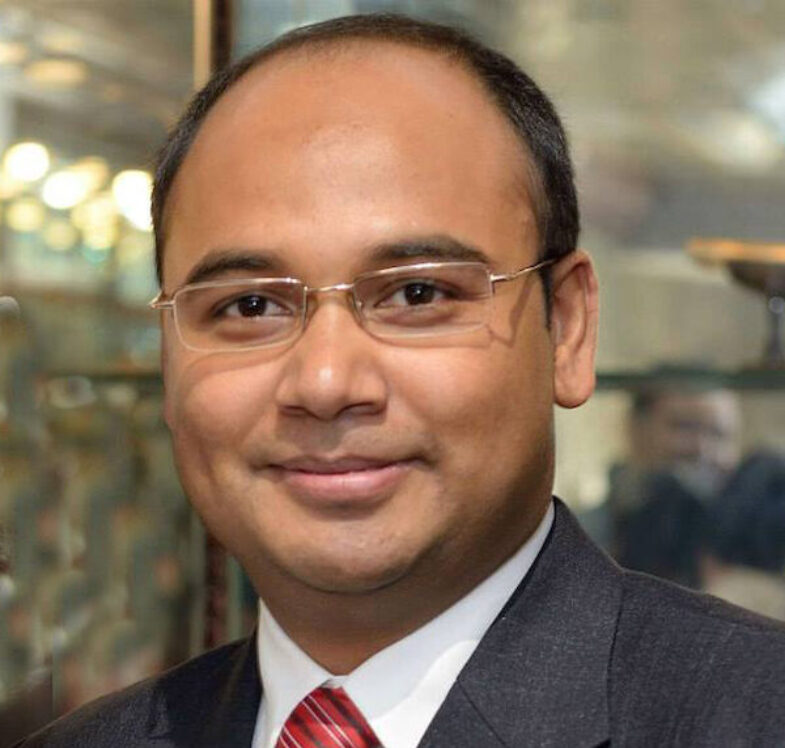
Dhiman Mondal hired as Research Scientist
MIT Haystack Observatory has hired Dhiman Mondal as research scientist in the geodesy group. Mondal has been working at Haystack as a post-doctoral associate since 2018, focused on improving the global geodetic reference frame by utilizing an improved atmospheric model.
Mondal was born in a small town in Bangladesh. He received his undergraduate degree in geology from University of Dhaka, Bangladesh, in 2009. He completed his masters of science degree in geophysics focused on earthquake seismology in 2010 under the supervision of Professor Humayun Akhter, Director of Dhaka University Earth Observatory, University of Dhaka.
Mondal has worked in several renowned industries and research institutes in Bangladesh. During his tenure at the Dhaka University Earth Observatory, he helped develop the first seismic and geodetic monitoring network in Bangladesh in collaboration with Lamont-Doherty Earth Observatory, Columbia University, and the help of UNAVCO and IRIS. Mondal moved to the United States to further his studies, where he completed his Ph.D. in geophysics from The City University of New York focusing on documenting and modeling a paleo mega earthquake using both modern and paleo geodetic methods such as coral-microatoll under the supervision of Professor Cecilia McHugh. Mondal’s study using high precision Global Navigation Satellite Systems (GNSS) in the Indo-Burma region led to a discovery of highly active and seismogenic megathrust fault beneath one of the highly populated regions in the world, covered extensively in the international press (https://sites.google.com/view/dhimanmondal/others/my-research-in-press).
Geodesy group leader Pedro Elosegui said, “Dhiman has developed new methods that exploit the local atmospheric structure to improve the accuracy of system ties at core geodetic sites; his approach thus reduces one of the limiting sources of error in establishing a robust, stable terrestrial reference frame that is suited for modern geodesy. He has also mastered space geodetic techniques such as VLBI and GNSS. We are proud to have him contributing to Haystack research, particularly geodesy.”
At Haystack, Mondal will contribute to the growth of a globally recognized program in the development of space geodetic techniques such as Very Long Baseline Interferometry (VLBI) and Global Navigation Satellite Systems (GNSS), and in their scientific applications, especially those that emphasize a combination of geodetic techniques, the realization of terrestrial reference frames, or atmospheric water vapor modeling.
“I am pleased to join Haystack Observatory, a well-known research institute for developing cutting-edge technology and methods in space geodesy, as a research scientist,” said Mondal.